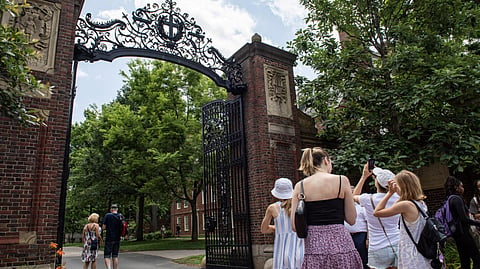
- NEWS
- the EDIT
- COMMENTARY
- BUSINESS
- LIFE
- SHOW
- ACTION
- GLOBAL GOALS
- SNAPS
- DYARYO TIRADA
- MORE

WASHINGTON — Legacy admissions, which give children of alumni an edge in college admissions in the United States, are coming under increased scrutiny.
The practice is not new, but it has taken on new urgency in the wake of a Supreme Court ruling that ended affirmative action in college admissions.
Some universities are already moving to end legacy admissions, while others are facing legal challenges. And even among students who have taken advantage of it, unease is growing.
"I absolutely think it's affirmative action for the rich," Yoni Rechtman, 28, who has benefited from the policy, said. "If you said 'Hey, the people whose parents worked at this company will get preferential treatment'… it would not stand."
Murphy, of Education Reform Now, said he expects more universities to announce an end to legacy admissions by October, as pressure continues to mount.
"If I'm one of these Ivy League colleges, if I'm Stanford University, do I really want to be the last one" to abandon such a criticized practice, he asked.
Legacy admissions is a practice in which universities give preference to the children of alumni. This can include factors such as giving them a higher acceptance rate or waiving application fees.
With AFP
